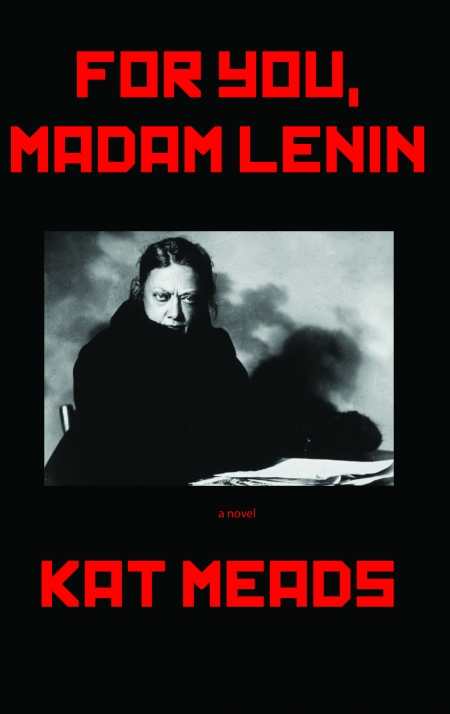For You, Madam Lenin
- 2012 INDIES Finalist
- Finalist, Historical (Adult Fiction)
This unconventional historical novel set during the Russian Revolution focuses on Lenin’s wife, Nadya Krupskaya, and not her more famous husband. Nadya is already committed to the revolution when she meets Vladimir Ilyich Ulyanov, the man we know as Lenin, at a study meeting in Piter. When she returns home that evening, her mother senses her daughter’s attraction with foreboding.
Yelizaveta Krupskaya claims that her daughter “believed with the whole of her being in the fairytale of revolution. And in that fairytale, Ilyich played the prince.” It was an unlikely romance. Nadya learns of her engagement while she is in prison. When she is released, she and her mother follow Lenin to Siberia and then to exile in Europe before returning to Russia in 1917.
Lenin admires Nadya but doesn’t love her in the way she loves him. In most stories, this would evoke our sympathy, but Nadya rejects it. Instead she works, ceaselessly. When Lenin takes a lover, she accepts the woman as a friend. When the October Revolution succeeds and the trio move to Moscow, the work intensifies. Even when Lenin is shot and entombed against his wishes in Red Square, she packs her prisoner’s bag and works.
The novel is told by Nadya’s mother and an unnamed narrator. Yelizaveta believes in the revolution, but her first allegiance is to her daughter: She’s not afraid to chastise Lenin to pay more attention to his wife’s health or to slap his conniving sister. Irregular “interviews” with historical women—including the Tsarina Alexandra and the woman accused of shooting Lenin—provide much of the book’s sly humor. We learn that Nadya was temporarily feared by Stalin and that Lenin’s sister thought she looked like a fish.
Kat Meads is the author of four previous novels as well as collections of poetry and prose. She has published a mystery under the name of Z. K. Burrus.
The novel’s short chapters and different narrators, combined with workaholic characters, keep the reader at arm’s length. While one might prefer more familiarity with Nadya’s inner thoughts, a scene with the American journalist, Louise Bryant, shows how wrong that impulse would be. At the end, even as the reader yearns for a greater connection, Nadya’s mother admonishes: “Then you do not understand my Nadya. Still you do not understand.” Nadya worked.
Reviewed by
Karen Ackland
Disclosure: This article is not an endorsement, but a review. The publisher of this book provided free copies of the book to have their book reviewed by a professional reviewer. No fee was paid by the publisher for this review. Foreword Reviews only recommends books that we love. Foreword Magazine, Inc. is disclosing this in accordance with the Federal Trade Commission’s 16 CFR, Part 255.


